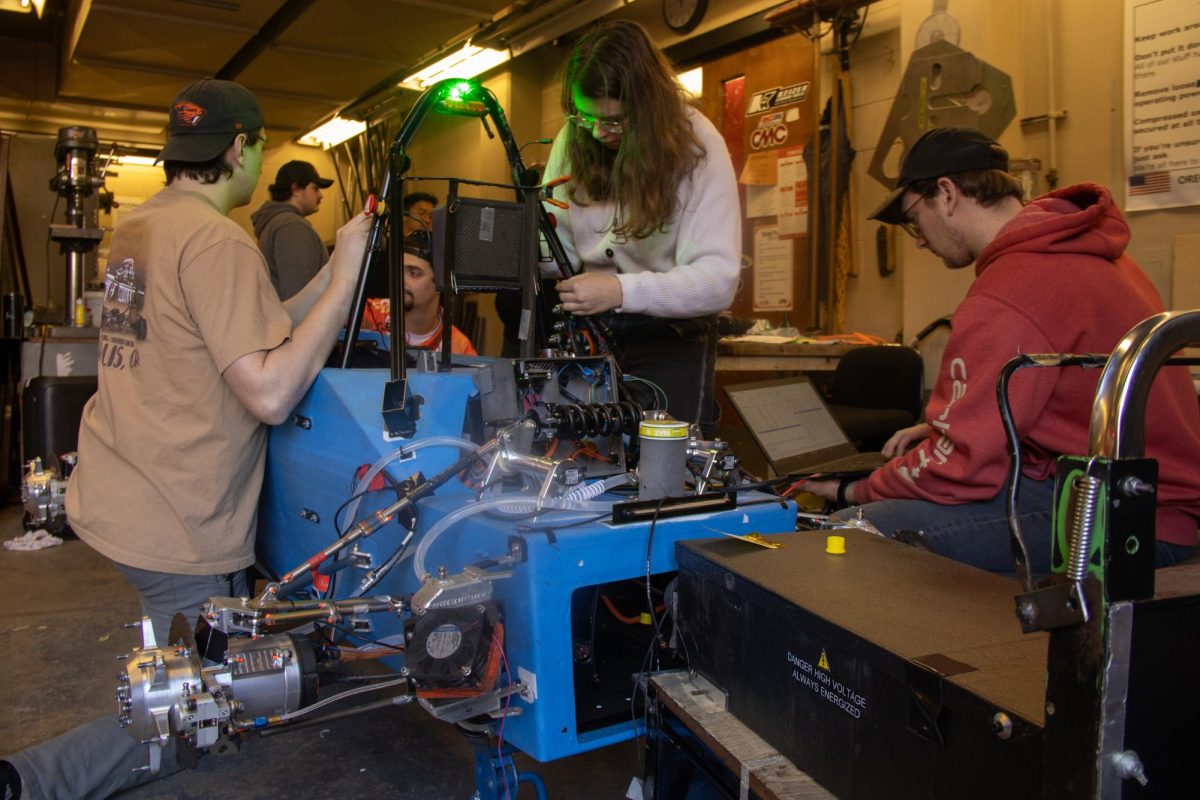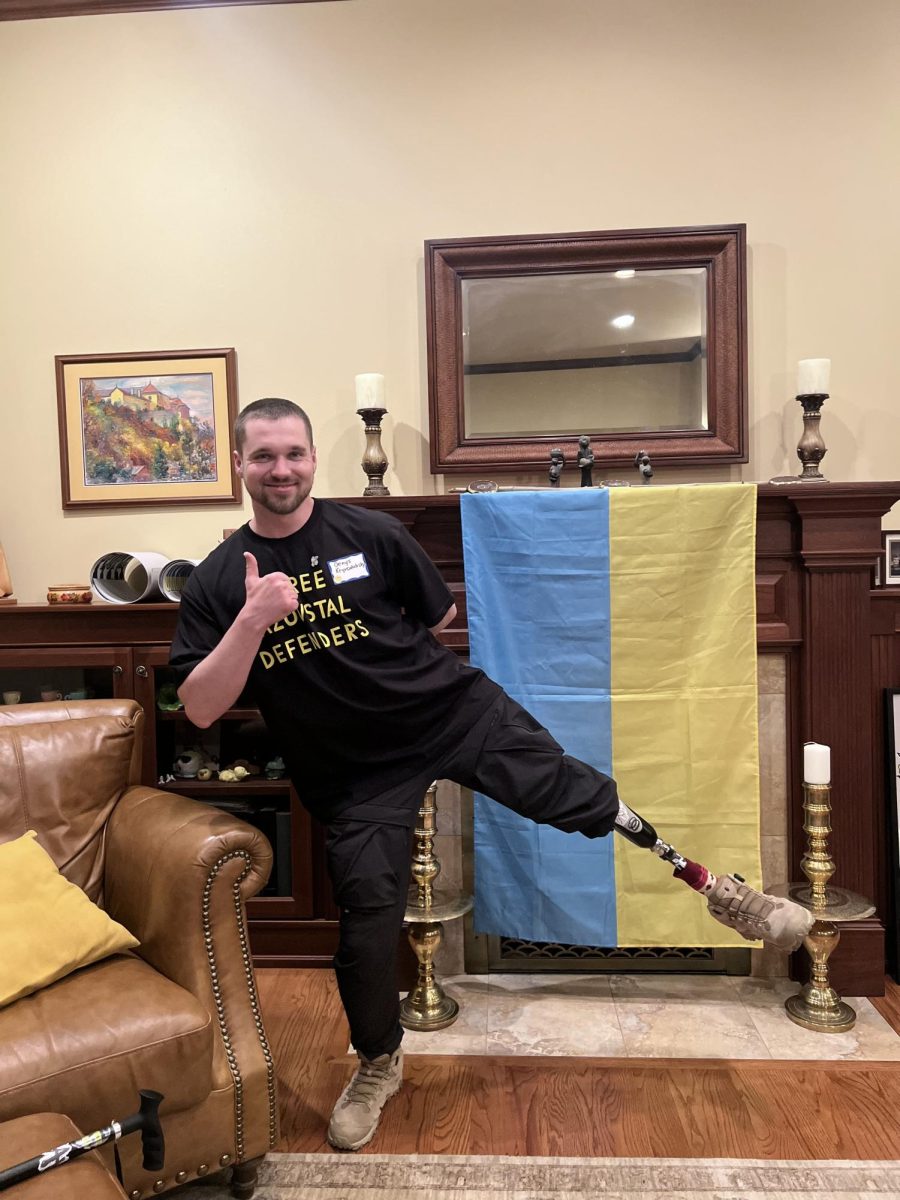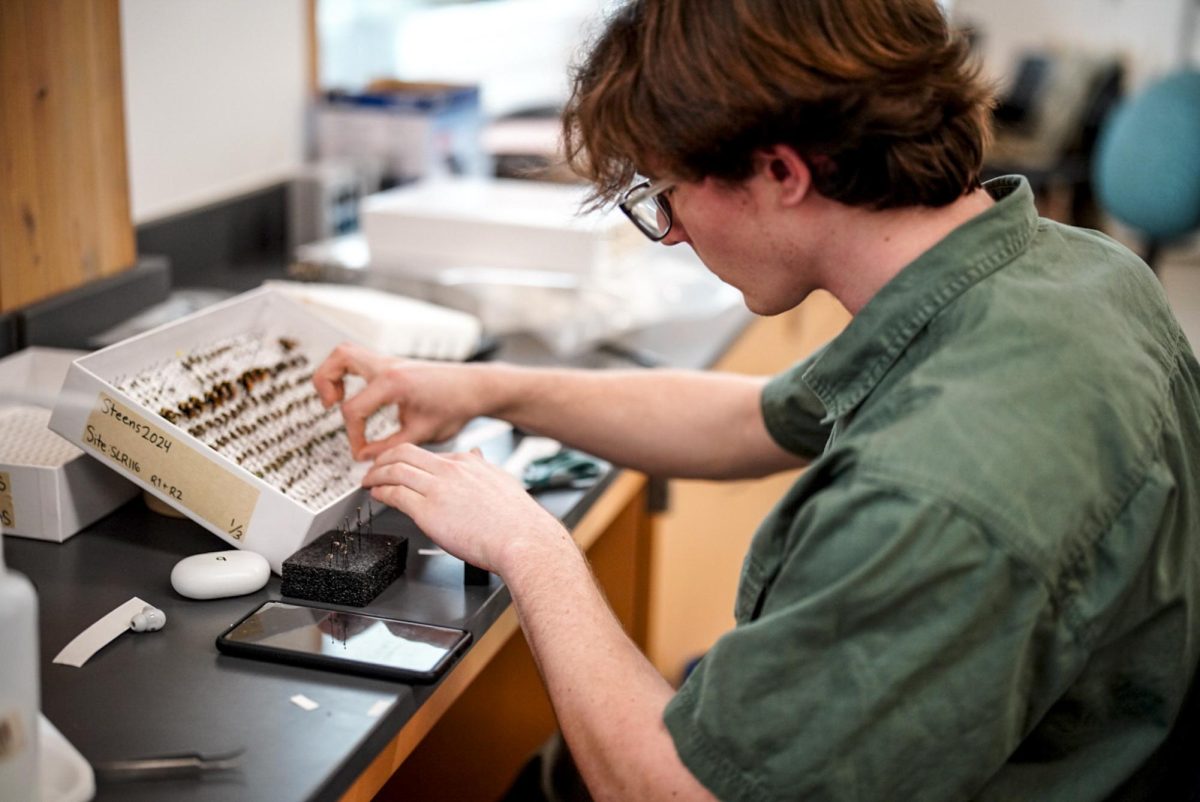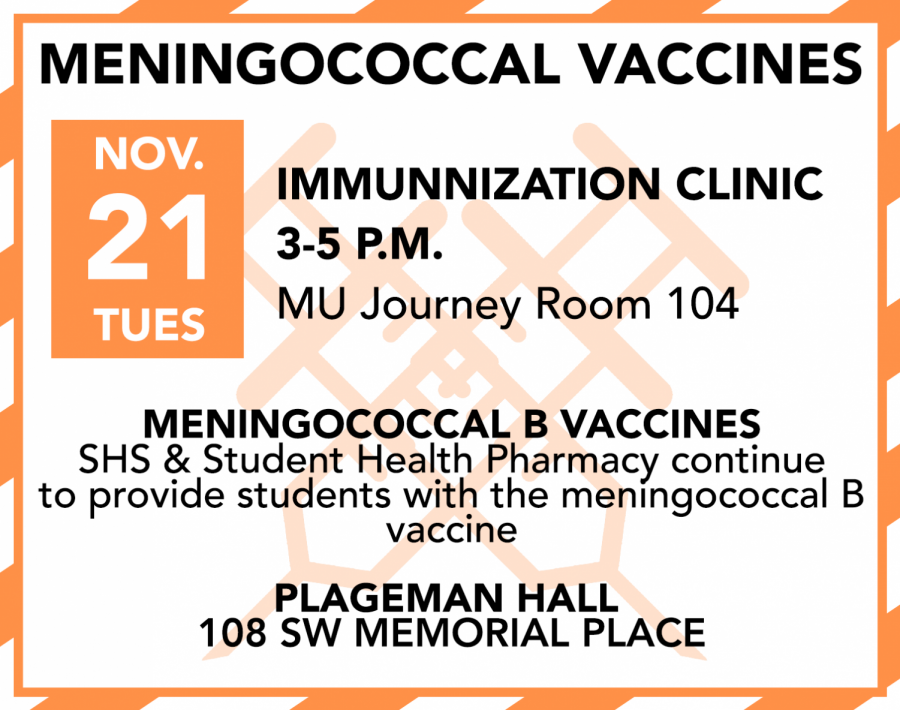Meningococcal: a community reponse
November 13, 2017
OSU, Student Health Services raise awareness on disease, stress importance of receiving vaccination
Due to a recent case of meningococcal B at Oregon State University, officials and health services have been raising more awareness on the disease and stressing the importance of getting vaccinated. Last year, three OSU students tested positive.
Though meningococcal is a rare disease and not easily transmitted, it is a serious and life-threatening disease, even in healthy individuals, according to Jeff Mull, medical director at Student Health Services. Additionally, meningococcal disease can lead to meningitis, which is an infection of the fluids that line the brain and spinal cord. Death and loss of appendages are also results as the disease affects the central nervous system, which subsequently affects the circulatory system and begins to shut down components of the body.
“Meningococcal disease is a bacterial infection caused by one of several strains of bacteria that affects the lining of the brain,” Mull said via email. “This bacteria is very aggressive and can progress rapidly over 12-24 hours.”
According to Bill Emminger, Benton County environmental health division director, a tricky aspect of the disease is that it can be present in a community such as OSU and lay undetected for some time.
“It can be on your body, it can be in your nasal passages and you’ll have no signs or symptoms of meningitis, and we don’t understand why that really happens, but something happens that all of a sudden makes a carrier susceptible,” Emminger said.
There are ways to stay aware of meningococcal B and how to recognize symptoms of the disease, according to Emminger.
“With meningococcal, one of the first steps is identifying close contacts. One thing we know about meningococcal is we need about four hours of exposure time, typically in a close environment where maybe there’s about three feet of separation,” Emminger said.
Individuals should take precaution anytime saliva is shared from one person to another person, such as when sharing drinks and meals, engaging in sexual contact and kissing, according to Emminger.
In February of this year, the Benton Country Health Department (BCHD), in consultation with OSU, the CDC, and the Oregon Public Health division , declared an outbreak of group B meningococcal disease at the OSU Corvallis campus, and recommended meningococcal B vaccination for all undergraduates age 25 years and younger. Oregon State University requires incoming students under the age of 22 to have the quadrivalent meningococcal vaccine (MCV4), which covers multiple strains of the disease but not the B strain. Starting this fall, in response to the outbreak, the university also began requiring incoming students age 25 and under to receive the meningococcal B vaccine series, according to Emminger.
According to Mull, the cost of a vaccine is $235 for the brand Bexsero and requires two doses. SHS also carries the brand Trumenba for students who have already received the first dose of the series, as the two cannot
be used together.
“Students, or their family members, are encouraged to contact their private insurance providers to verify that the cost of the vaccine will be covered,” Mull said via email. “When calling, it is important to let the insurance company know that the OSU Corvallis campus is in an ‘outbreak’ status, which means insurance companies should cover the cost of the vaccine.”
Restrictions may apply on where the
vaccine can be received, but the SHS will assist with students in discussing and working with private insurance plans, according to Mull. Students can also access vaccines at SHS and the OSU Pharmacy in Plageman Hall at any time. Other community pharmacies, clinics and primary care providers can provide vaccines upon request as well, Mull added.
The SHS and Benton County Health Department have started to mobilize and are encouraging individuals to be aware of symptoms and seek medical care if they are noted, according to Emminger. Health care providers are also under alert of the incidence of meningococcal B disease and to consider it when evaluating patients with appropriate symptoms. Benton County Health is also working with OSU, health providers and community partners to set up clinics while also providing education on the disease, Emminger added.
“Benton County Health Department is working closely with OSU healthcare providers in the community to provide guidance on signs and symptoms for meningococcal infection, educating healthcare providers on what the short term and long term regime should be. Getting antibiotics to close contacts early is very effective at preventing illness, while long term protection is provided by vaccinations for Meningococcus Serogroup B ,” Emminger said.
According to Emminger, with meningococcal, signs and symptoms can be high fevers, headaches, a stiff neck, exhaustion, nausea rashes, and vomiting. A blood infection involving meningococcal usually involves a fever and a rash and is most susceptible if a person has spent at least four hours in close face-to-face time with a person infected with meningococcal B disease.
“Anyone who has any signs or symptoms of meningococcal disease should go and see their medical provider or emergency room right away. OSU students that have these symptoms should visit OSU Student Health Services,” Emminger said. “Don’t wait for that to evolve because the sooner we get someone on antibiotics, the more likely they’re not going to develop the more serious symptoms.”




















































































![Newspaper clipping from February 25, 1970 in the Daily Barometer showing an article written by Bob Allen, past Barometer Editor. This article was written to spotlight both the student body’s lack of participation with student government at the time in conjunction with their class representatives response. [It’s important to note ASOSU was not structured identically to today’s standards, likely having a president on behalf of each class work together as one entity as opposed to one president representing all classes.]](https://dailybaro.orangemedianetwork.com/wp-content/uploads/2025/03/Screenshot-2025-03-12-1.00.42-PM-e1741811160853.png)























